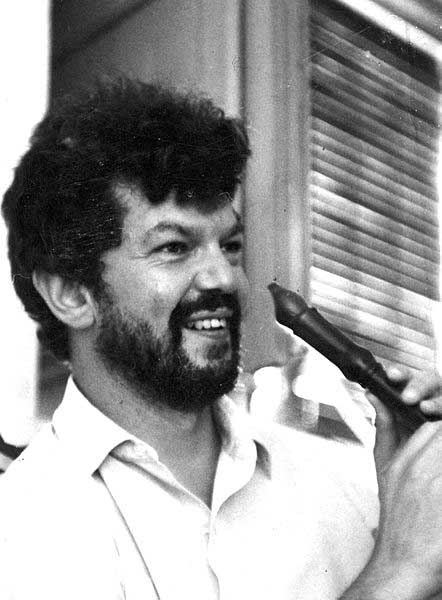.
Robert Brout

Robert Brout (*)
Robert Brout (1928) is a Belgian theoretical physicist who has made significant contributions in elementary particle physics.
Birth and academic career
Robert Brout was born in 1928 in the United States. He is a Professor of Physics at Université Libre de Bruxelles.
Research
In 1964, Robert Brout, in collaboration with Francois Englert, discovered how mass can be generated for gauge particles in the presence of a local abelian and non-abelian gauge symmetry. This was demonstrated by them, both classically and quantum mechanically, successfully avoiding theorems initiated by J. Goldstone while indicating that the theory would be renormalizable. Similar ideas have been developed in condensed matter physics.
Peter Higgs, a theoretical physicist at the University of Edinburgh, independently came to the same conclusion as Brout and Englert. This work showed that the particles that carry the weak force acquire their mass through interactions with an all-pervasive field that is now known as the Higgs field, and that the interactions occur via particles that are widely known as Higgs bosons. As yet, these Higgs bosons have not been observed experimentally; however, most physicists believe that they exist.[1][2]
In 1971, Gerardus 't Hooft, who was completing his PhD under the supervision of Martinus J. G. Veltman at Utrecht University, renormalized Yang-Mills theory in accordance with Veltman's suggestion how this was possible. They showed that if the symmetries of Yang-Mills theory were to be broken according to the method suggested by Robert Brout, Francois Englert, and Peter W. Higgs, then Yang-Mills theory is indeed renormalizable. Renormalization of Yang-Mills theory is one of the biggest achievements of twentieth century physics. Gerardus 't Hooft and Martinus J. G. Veltman were awarded the Nobel Prize in Physics in 1999 for this work.[3]
In addition to this work on elementary particle physics, in 1978, Brout, in collaboration with F. Englert and E. Gunzig, was awarded the first prize gravitational award essay [4] for their original proposal of cosmic inflation as the condition of the cosmos prior to the adiabatic expansion, (i.e. the conventional big bang), after cosmogenesis.
Wolf Prize
In 2004, Robert Brout, Francois Englert, and Peter Higgs were awarded the Wolf Prize in Physics for "for pioneering work that has led to the insight of mass generation, whenever a local gauge symmetry is realized asymmetrically in the world of sub-atomic particles".[5]
References
1. ^ Contributions of Robert Brout
2. ^ Wolf prize goes to particle theorists
3. ^ The Nobel Prize in Physics 1999
Retrieved from "http://en.wikipedia.org/"
All text is available under the terms of the GNU Free Documentation License

